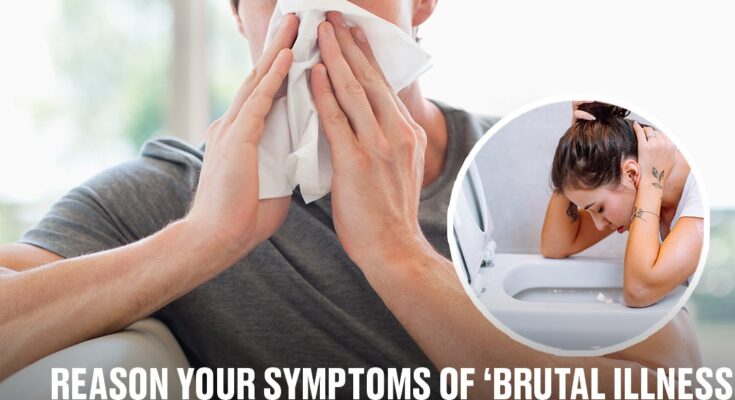 If you haven’t had the bug, it might be down to more than just good hygiene
If you haven’t had the bug, it might be down to more than just good hygieneIf you’ve had a run-in with Norovirus this winter season, then we feel for you.
Over the last few months, the UK Health Security Agency has issued warnings after a surge in cases of the highly contagious bug.
.jpg)
Norovirus cases have been surging this winter season (Getty Stock Photo)
Norovirus, which has also been nicknamed the ‘winter vomiting bug’, is a virus that mainly causes vomiting and diarrhoea.
Sufferers may also have a fever, a headache and muscle aches, too.
If you’ve had it, you’ll know it’s pretty unpleasant, but it does often clear within a few days.
However, it is known for being super contagious and is usually spread via close contact or on surfaces. It’s also pretty immune to hand gel, which is why washing hands is the best option if you want to avoid it.
.jpg)
There’s a reason why some people get it more than others (Getty Stock Photo)
If you haven’t had the bug, however, it might be down to more than just good hygiene.
Ever wondered why some people tend to get it while others don’t? Or, why some people come down with it much worse?
According to Professor Patricia Foster from Indiana University Bloomington, people with a certain blood type could be more resistant to the bug.
Turns out, those with B blood type could have less chance of catching Norovirus, than those with A, AB or O.
“When Norovirus is ingested, it initially infects the cells that line the small intestine. Researchers don’t know exactly how this infection then causes the symptoms of the disease,” writes Professor Foster.
“But a fascinating aspect of Norovirus is that, after exposure, blood type determines, in a large part, whether a person gets sick.
“Your blood type – A, B, AB, or O – is dictated by genes that determine which kinds of molecules, called oligosaccharides, are found on the surface of your red blood cells. Oligosaccharides are made from different types of sugars linked together in complex ways.
“… Norovirus and a few other viruses use these oligosaccharides to grab onto and infect the intestinal cells. It’s the specific structure of these oligosaccharides that determines whether a given strain of virus can attach and invade.
“… People with B blood type will tend to be resistant, whereas people with A, AB, or O blood types will tend get sick, but the pattern will depend on the specific strain of Norovirus.”

Those with a B blood type could be more resistant (Getty Stock Photo)
So, if your blood type is either A, AB or O, you could be less resistant to the bug.
Norovirus can usually be treated at home and tends to resolve after a couple of days.
The NHS heavily encourages getting plenty of rest and to make sure you have lots of fluids to avoid becoming dehydrated.
It’s also recommended to stay at home until you have not been sick or had diarrhoea for at least two days as this is when you’re most infectious.

It’s that time of year when nobody wants to spend money on anything, it’s too cold to do anything and everyone seems to be too sick to do anything.
The sounds of sniffles and coughs echo round the office as your work bestie leaves you to do it alone because they’ve got one brutal illness or another.
And one of those things causing the string of sick days in bed is the usual culprit of norovirus as it sweeps the UK.
Findings reported by gov.uk show that the reported cases are thankfully getting a little lower over recent weeks, but in general has been hitting huge highs compared to the five-season average.
So, it’s worth keeping yourself aware of the symptoms and what the NHS say to do if you’re unlucky enough to be wiped out by it this winter.
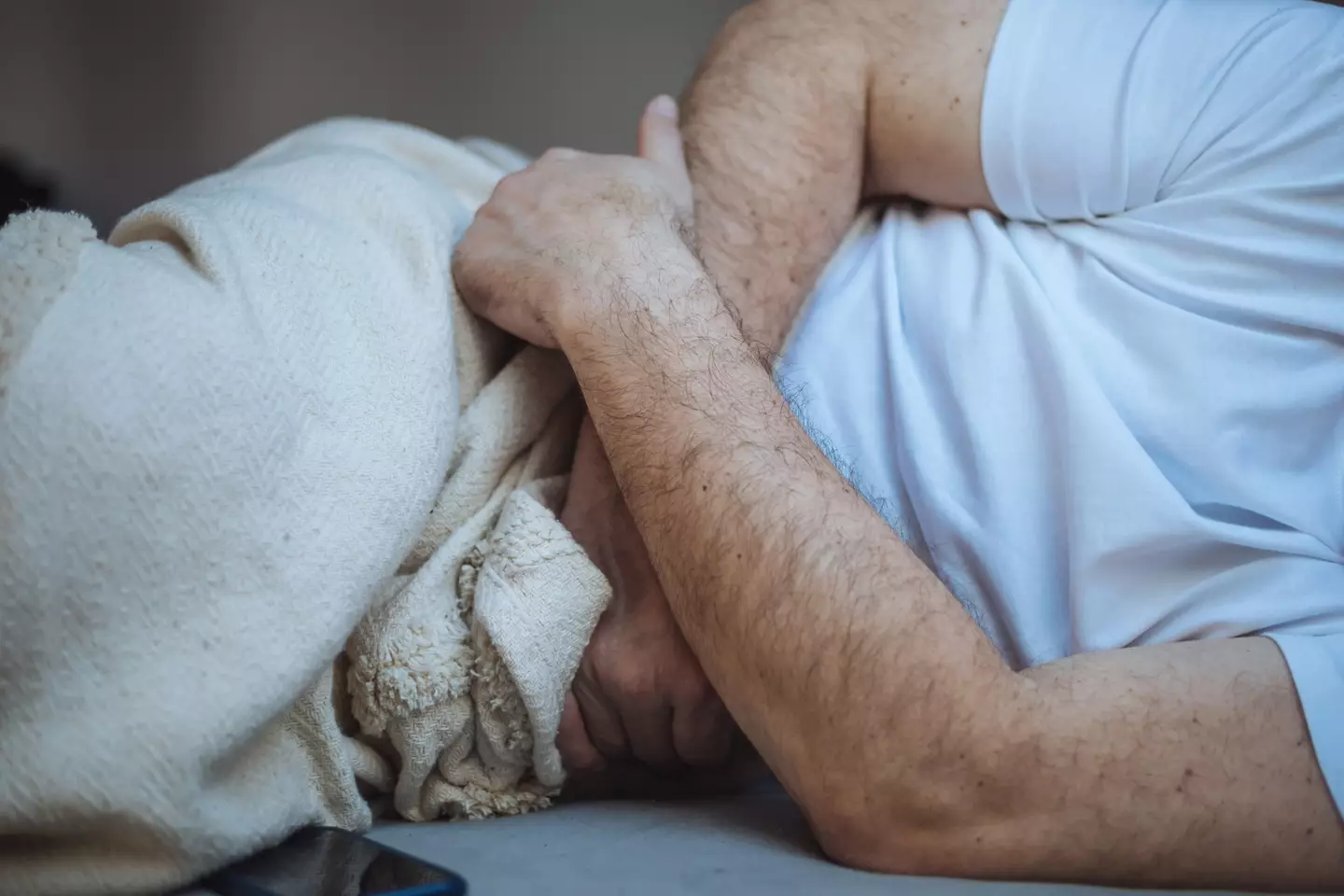
It can absolutely wipe you out (Getty Stock)
Norovirus symptoms
Also called the ‘winter vomiting bug’, it’s essentially a stomach bug that causes vomiting and diarrhoea. Nice.
As listed by the NHS, the main symptoms of norovirus are experiencing nausea, having diarrhoea and being sick.
You might also get a high temperature, have a headache and experience aching arms and legs. Norovirus symptoms tend to come on suddenly within one to two days of being infected.
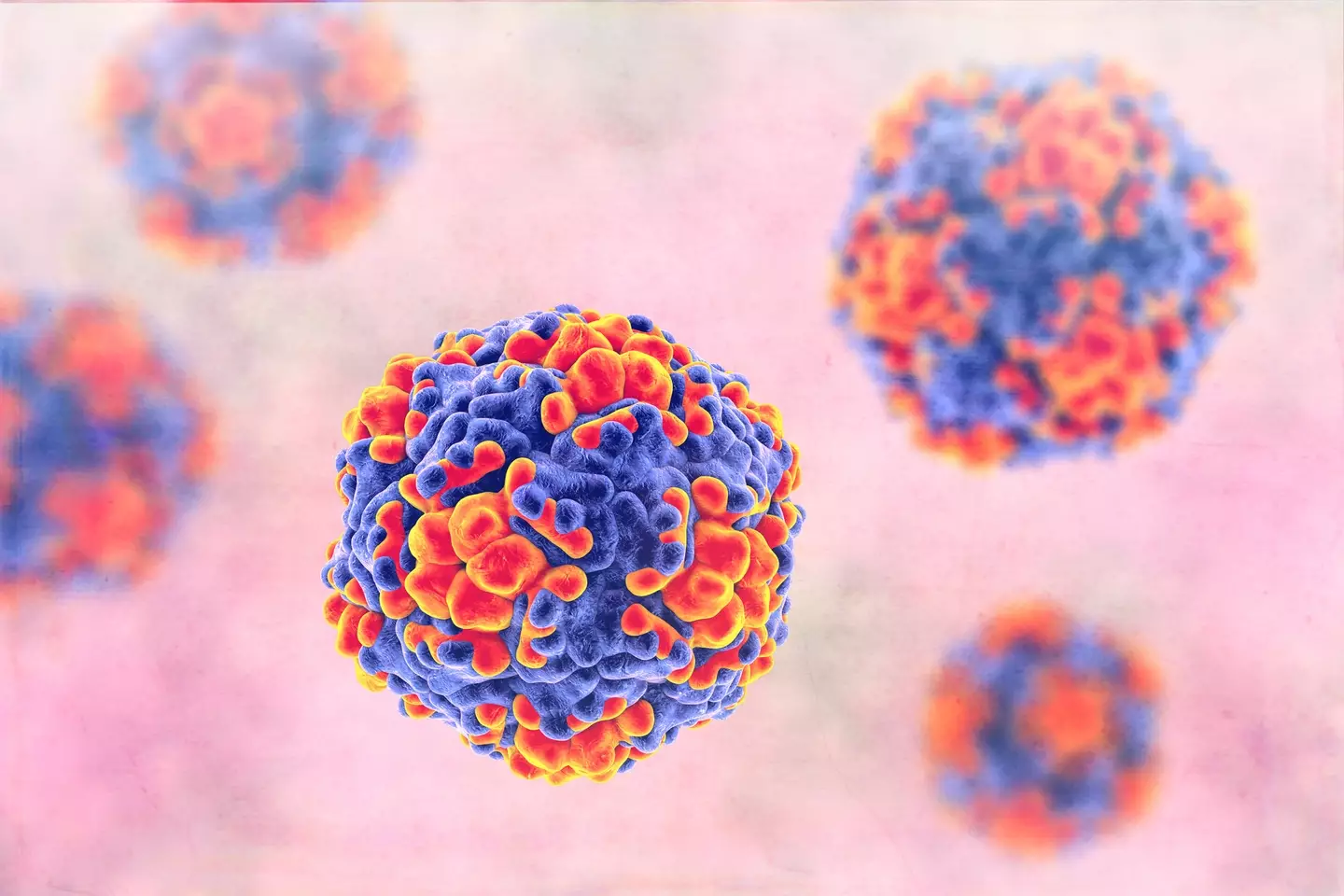
It causes a rage of nasty symptoms (Getty stock photo)
How norovirus spreads
Unfortunately, this brutal winter illness spreads pretty easily.
It can be caught from having close contact with someone who has it, touching surfaces or objects that have the virus on them and then touching your mouth or by eating food that’s been prepared or handled by someone with the illness.
You can stop the spreading by washing your hands frequently soap and water. However, alcohol hand gels cannot kill norovirus.
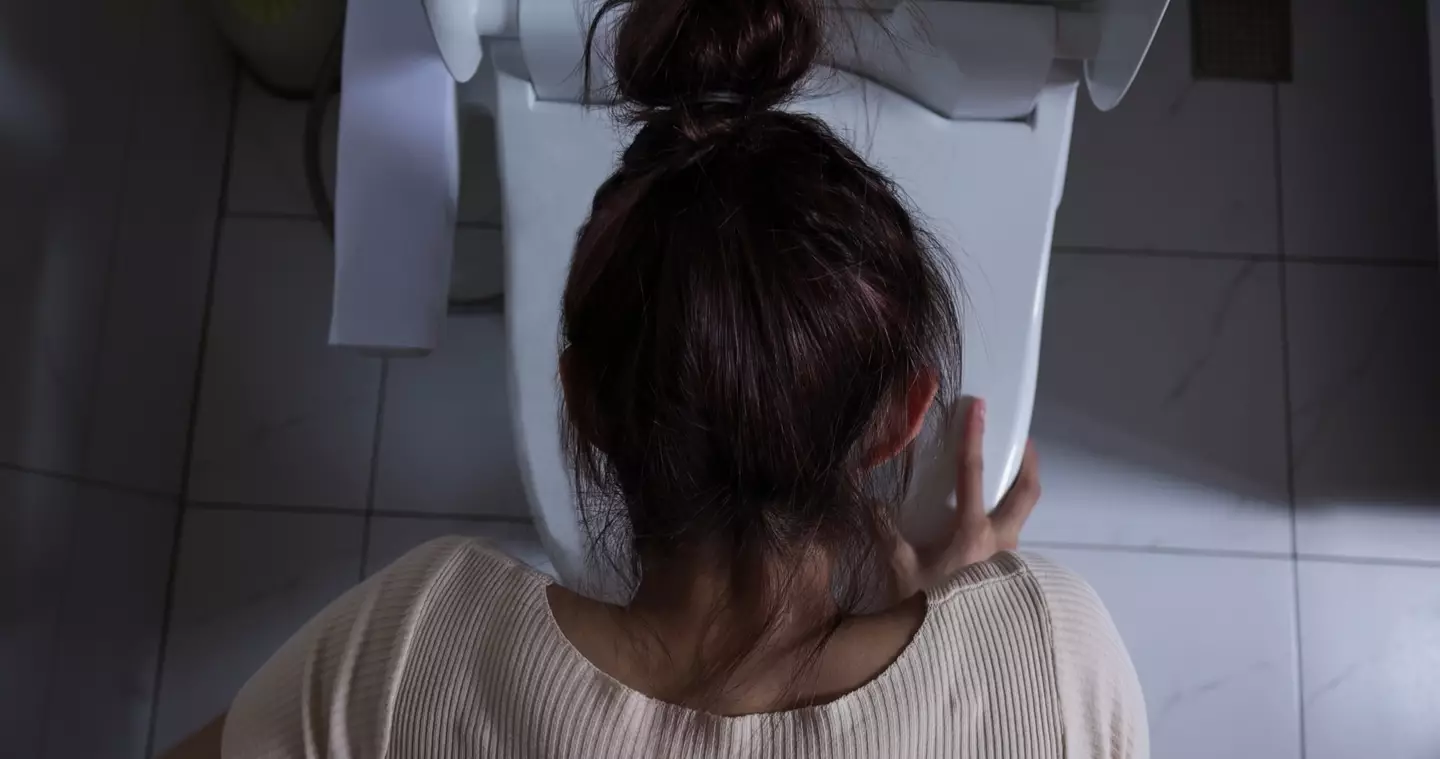
Stay home if you have it. (Getty Stock)
NHS guidance
Thankfully, you can usually treat norovirus at home and it tends to just go away by itself in around two days.
The NHS heavily encourages getting plenty of rest and to make sure you have lots of fluids to avoid becoming dehydrated.
Painkillers can also help to ease aches and pains, while it’s also advised to stick to plain foods and not eat too much at once in order to avoid upsetting your stomach.
Plus, you really shouldn’t try and tough it out and head to work or school as your peers certainly won’t thank you. Instead, the NHS say to stay off until you have not been sick or had diarrhoea for at least two days as this is when you’re most infectious.
And on that note, you shouldn’t visit hospitals or care homes during that time.
If your symptoms persist, get advice from 111.

The brutal illness that is currently sweeping the nation has reached seasonal highs, and it doesn’t show any signs of improving.
Luckily, health experts and the UK government have provided advice on what to do if you catch the infamous norovirus.
The ‘Kawasaki bug’ variant, named after the Japanese city it originated from, is currently taking the country by storm, as Brits have been told to stay home for days if they catch the illness.
According to the UK Health Security Agency (UKHSA), almost 70 percent of all norovirus cases in the country are of this particular variant of the disease.
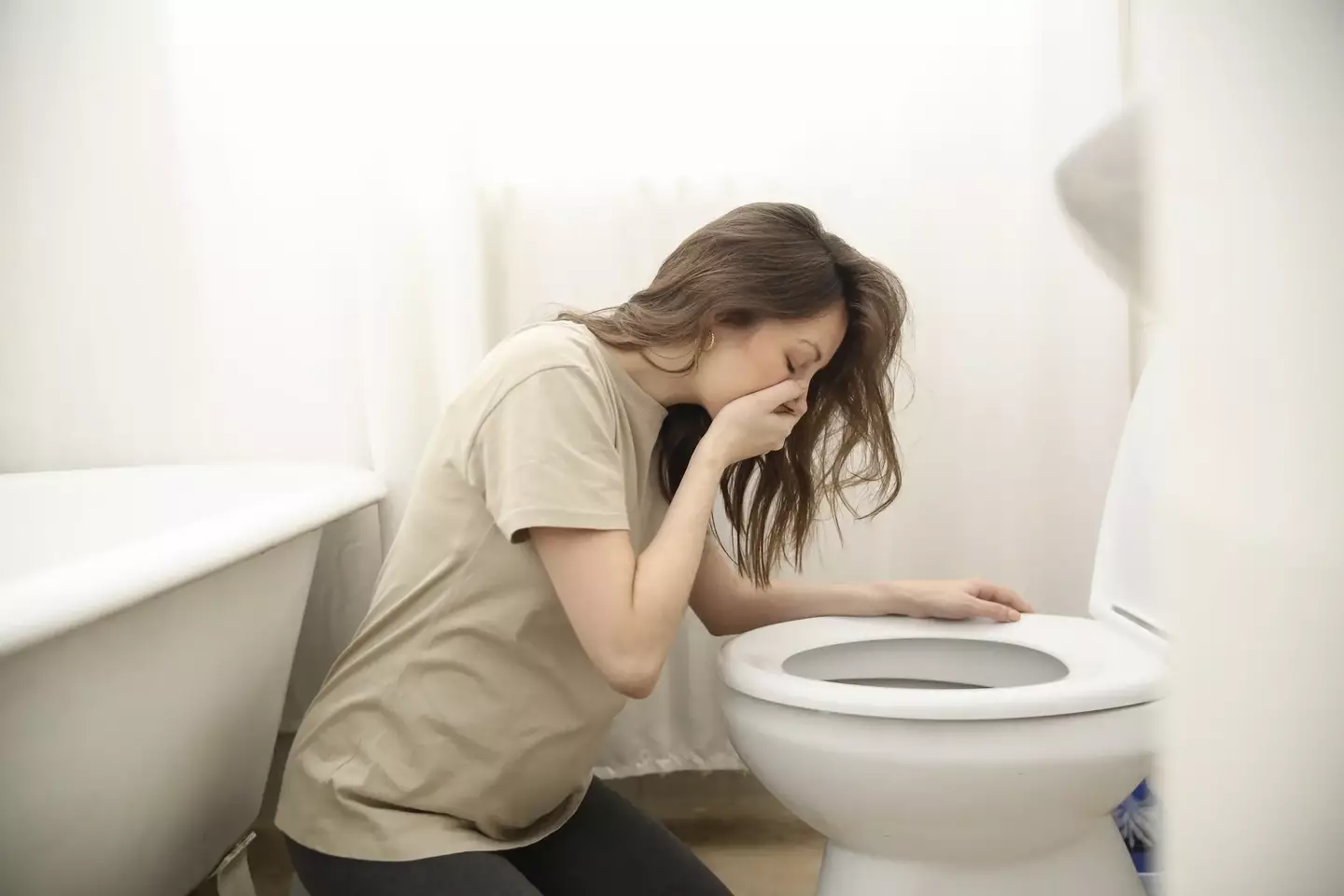
Norovirus is currently sweeping the nation (Getty Stock Photo)
UKHSA took to X to say: “While #norovirus cases remain high, there are some simple steps you can take to avoid spreading the infection.”
In their latest official National norovirus and rotavirus report, they also detailed: “Norovirus activity has remained high in recent weeks, with total norovirus laboratory reports between weeks 42 to 43 of 2024 more than double the 5-season average for the same 2-week period,” adding that in the 2024/25 season, it is 26 percent higher than average.’
What is norovirus?
Norovirus a short-lived illness that can go in around two to three days, which the NHS describe as ‘very unpleasant’.
Symptoms such as nausea, diarrhoea, vomiting, a fever, a headache, and arm and leg aches can indicate that you have contracted the virus.
Young children and the elderly, or those with weakened immunity, are more at risk of suffering prolonged illness.
w do you stop the spread of norovirus?
It is transmitted through contact with people, UKHSA explained, as well as surfaces or objects that may be contaminated with it.
The way to avoid it is to stay clean and wash your hands throroughly, as often as you can.
This will stop it from spreading, and it should be noted that hand sanitisers are not effective against the infection.
In addition, six pointers have been shared with the public on what to do if you do fall ill with norovirus:
Don’t use antibiotics
You should avoid antibiotics as these fight bacteria, not viruses.
Stay hydrated
Throwing up and having diarrhoea causes your body to lose not just water, but salts too. It is crucial to drink plenty of fluids and electrolytes to prevent dehydration.
Stay at home
It’s important that you stay home where possible, as the laws behind taking time off work due to the illness have also been outlined.
The government also urges people not to send children to school until their symptoms have subsided for 48 hours, and visiting your GP while symptomatic is not recommended.
Calling your GP on the phone, reading the NHS norovirus webpage or contacting 111 are ways to find out more if you are worried about your symptoms.
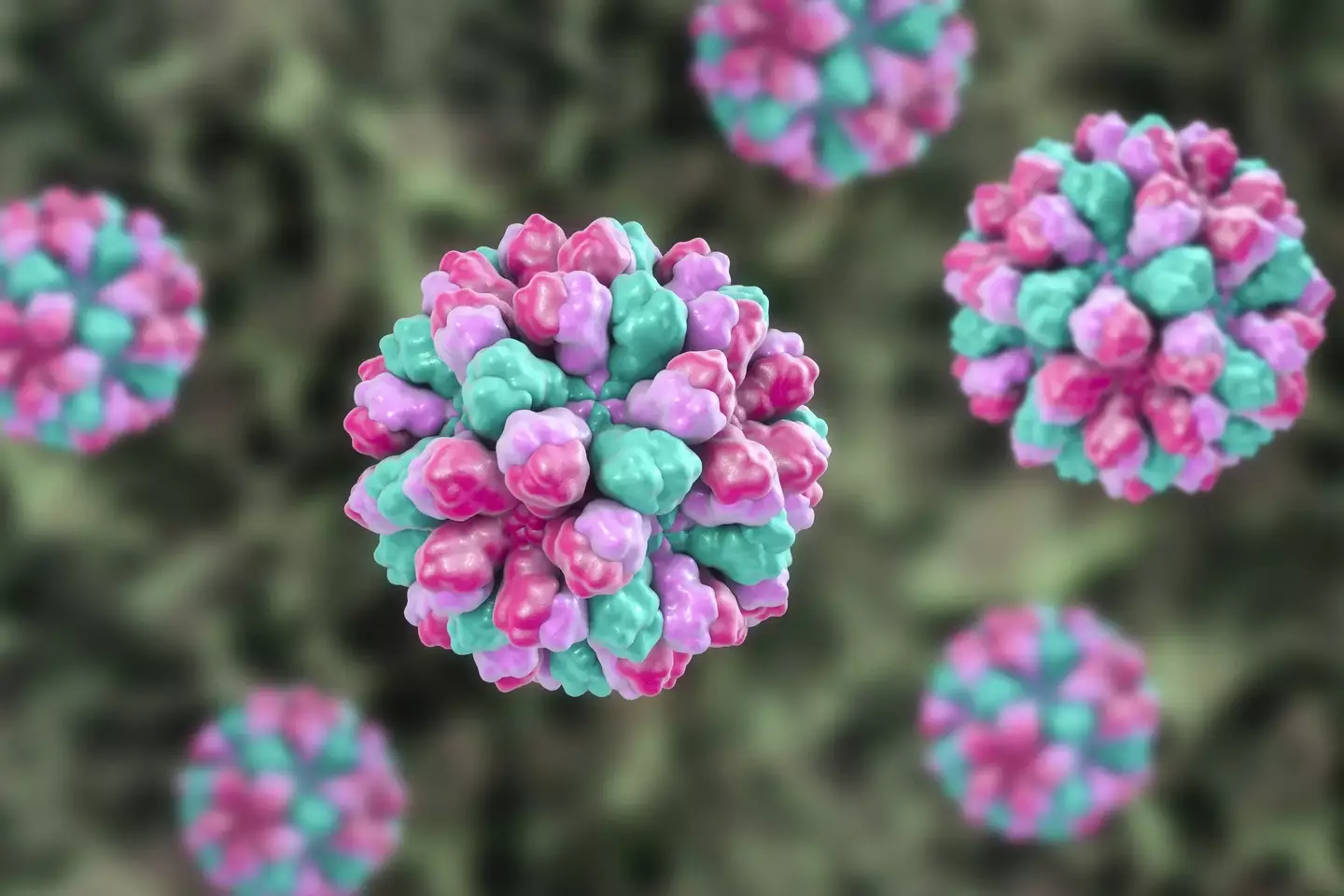
You should stay at home for at least two days if you fall ill with norovirus (Getty Stock Photo)
Avoid cooking for others
You should wait for 48 hours after symptoms have stopped to prepare food for others, as the virus can be spread through contaminated food when handled by people with the condition.
Wash clothes in hot water
Contaminated clothes or bedding should be washed with detergent at 60°C if possible, and it is advised you wear disposable gloves to handle anything contaminated.
Use cleaning products
Bleach-based cleaning products should be used to disinfect contaminated surfaces – a simple wet cloth won’t suffice in removing the chances of it passing over.
There is no cross-strain immunity when it comes to norovirus, so it is possible to have several infections in a short period of time.
Taking care and following the government’s advice above can save you from catching it in the colder months, when the virus thrives.
So, stay safe out there1

Brits have been urged by experts to beware of the growing cases of an illness which can be mistaken for the common flu or cold.
In recent weeks, China has seen a sharp increase in cases of the illness, leading people to fear another worldwide outbreak.
HMPV, or human metapneumovirus, is most common among children, with countries such as India, Kazakhstan and Malaysia also seeing an increase in cases.
If some patients aren’t careful, it can lead to other health complications, such as respiratory issues.
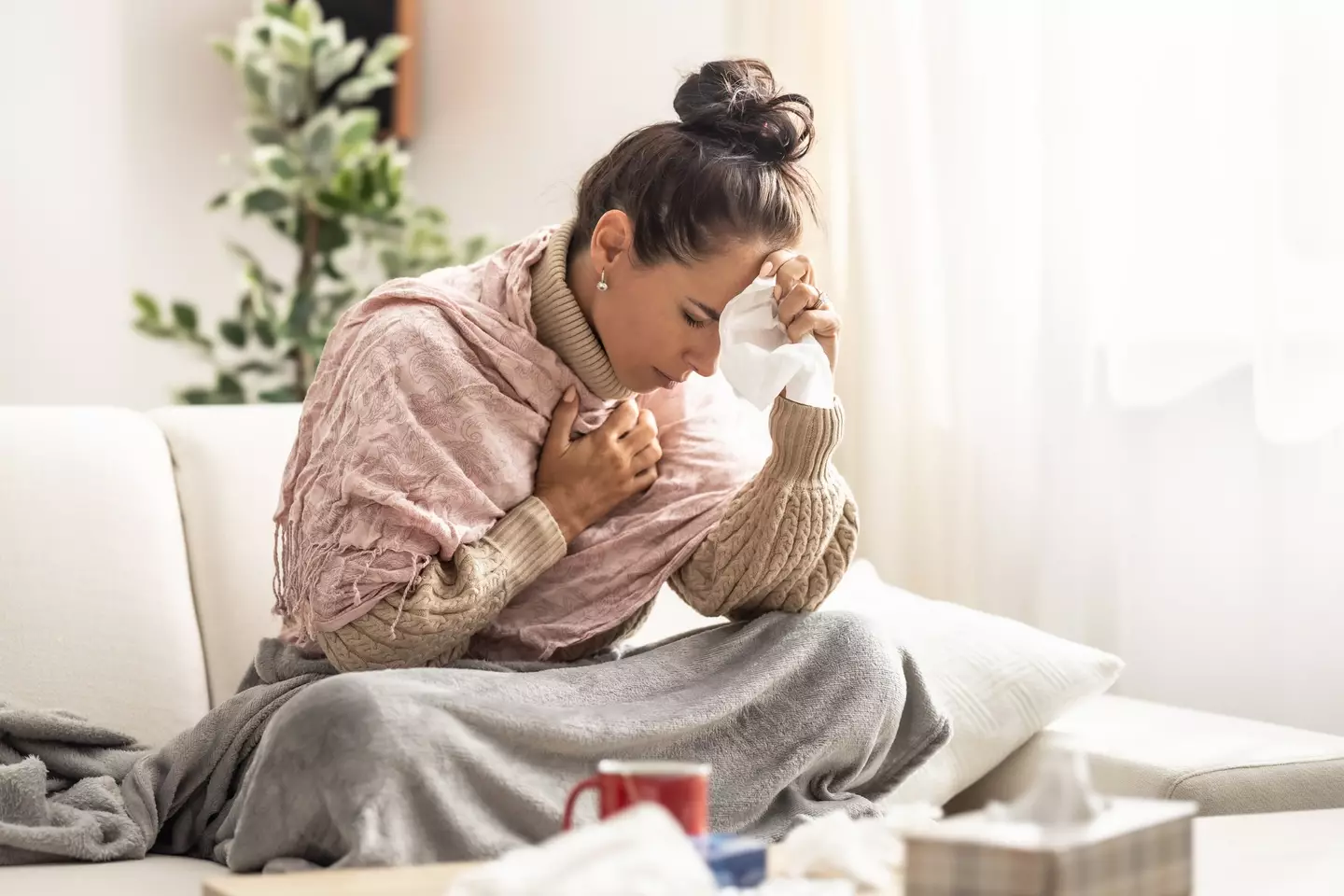
The illness is starting to spread quicker (Getty Stock Photo)
What is HMPV?
The virus first surfaced in 2001, and like the flu, it can be spread through sneezing, coughing, or contact with contaminated surfaces.
Similar to respiratory syncytial virus (RSV), it is a seasonal virus that thrives in colder weather and mostly affects children under the age of five.
But before you start comparing it to Covid-19, it should be noted that it’s a regular seasonal illness that has come and gone across the world for decades, so there is more resistance among the general population, The Independent says.
What are the symptoms of HMPV?
There are a number of symptoms to look out for, according to Public Health Scotland, such as:
- Coughing
- A fever (high temperature)
- Nasal congestion (runny nose)
- Fatigue
These symptoms can take anywhere between three and six days to clear, and while there are no vaccines or specific treatments for the sickness, it should be gone within a week.
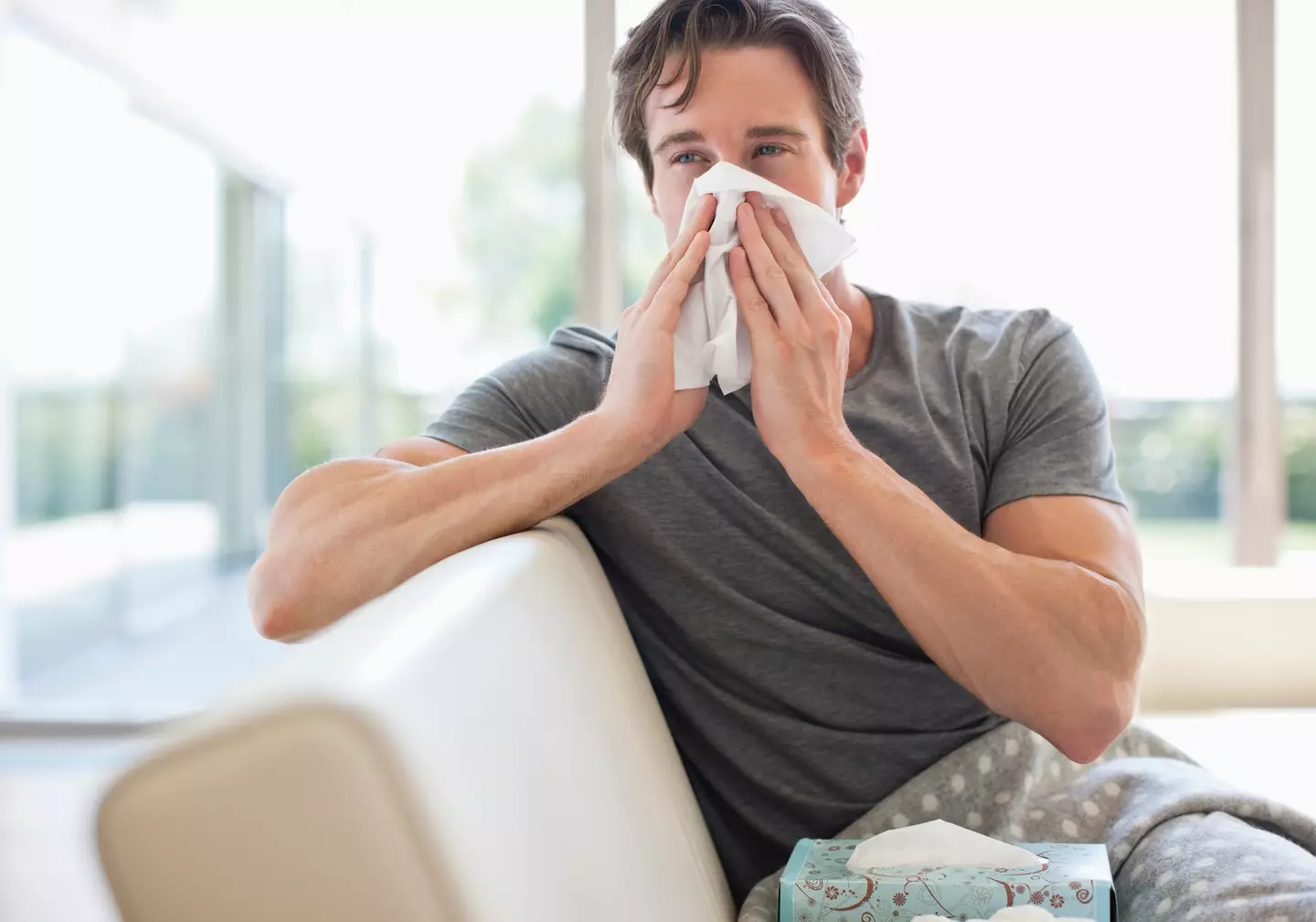
The condition is similar to having the flu (Getty Stock Photo)
Are cases of HMPV increasing in the UK?
Unfortunately, the answer here is yes.
The latest data from the UK Health & Security Agency (UKHSA) reveals that cases of HMPV are ‘increasing slightly’, with 4.5 percent of lab tests being positive between 23 and 29 December.
READ MORE
COMMON MISTAKE THAT COULD LEAVE WATER BOTTLE DIRTIER THAN TOILET SEAT
DOCTOR EXPLAINS EASILY MISSED SYMPTOM OF CANCER THAT WAS ‘VERY RARE’ BUT NOW ON THE RISE
Compared to the flu, which has 29.5 percent of lab tests positive during the same period, it looks OK, but compared to Covid, it is higher as the latter stood at 2.5 percent.
However, as there is more of a global resistance to HMPV, it is highly unlikely that it will reach anywhere near the scale of the coronavirus pandemic.
What are experts saying?
Professor John Tregoning, who is an expert in vaccine immunology at Imperial College London, has compared the illness to RSV, explaining to The Daily Mail: “It is part of the cocktail of winter viruses that we are exposed to and, like other viruses, it will transmit in coughs, sneezes and in droplets.”
He added that staying in ‘well-ventilated spaces’, and simple things such as covering your mouth when you cough and washing your hands often can help to stop spread the illness.
He also noted that antibiotics won’t have an effect as it is a virus, and the main treatment is to manage symptoms.

Those in higher risk categories should visit the GP if they show any of the main symptoms (Getty Stock Photo)
Professor Jaya Dantas at Curtin University in Australia explained that we have to ‘wear a mask in public’ and stay away from others to protect the vulnerable.
“In young children, the elderly and those who are immune compromised, HMPV can lead to severe cases and can move to the lower respiratory tract and may lead to pneumonia,” the expert explained.
Another professor, Jonathan Ball, who works at Liverpool School of Tropical Medicine, highlighted: “HPMV has been known about since 2001, and has been circulating in humans for at least 50 years – probably a lot longer. Unfortunately, it is associated with pneumonia, particularly in young children, but this is thankfully rare.”
Meanwhile, Professor Paul Hunter from the University of East Anglia, added: “Almost every child will have at least one infection with HMPV by their fifth birthday and we can expect to go on to to have multiple reinfections throughout life.
“It is one of the leading viral causes of respiratory infections in children under five-year-olds.”
How can you test for HMPV?
HMPV symptoms will fade within a week for those that are healthy and going through mild conditions, so a trip to the GP is usually not necessary.
But those in higher risk categories, such as those with respiratory problems, a weak immune system or old age, may want to visit the GP to be safe.
If you’re experiencing intense symptoms, it is advised that you visit the GP, where they will provide a test is necessary.
Some of these severe symptoms are bronchitis, bronchiolitis and pneumonia, as well as a shortness of breath or wheezing.

A doctor has explained why he thinks the ‘winter vomiting bug’ is sweeping across the United Kingdom ahead of the colder, dark months.
The highly contagious norovirus is making its way across the UK, with cases far higher than normal for this time of year.
So far this autumn, cases are 30 percent higher than usual for the two week period in to the start of October.
In real terms, that means we are seeing 100 percent more infections than normal for this time of the year.

We’ve all been there (Getty Stock Images)
Norovirus is called the winter vomiting bug because, well, it does just that. You’re likely to get pretty sick, and if you’re lucky enough to avoid that, you could be left feeling incredibly nauseous.
You’re also likely to have a nasty case of diarrhoea, with headaches and arm and leg aches also really common across the board.
But why is it spreading? LADbible spoke to one doctor who gave us his thoughts.
Why is norovirus spreading in the UK?
Speaking to Dr Ramit Singh Sambyal, a doctor and general physician who works with ClinicSpots, LADbible asked why cases are spreading more than normal for a standard autumnal season.
For Dr Sambyal, there are a number of factors that could be at play, with some of them going back to the Covid pandemic.
“There are a few reasons why norovirus cases might be spiking earlier than expected,” Dr Sambyal said.

Having norovirus is horrible (Getty Stock Images)
“For one, we’re seeing an increase in person-to-person contact now that most COVID-related restrictions are behind us. More gatherings, more indoor activities, and people spending more time together in close quarters all contribute to higher transmission rates.”
Dr Sambyal added: “Another factor could be the natural seasonal pattern of norovirus. While it’s most common in the winter months, it’s not unusual to see cases start rising in autumn. The virus thrives in cooler weather when people spend more time indoors, and ventilation isn’t as good, making it easier for the virus to spread.
“Interestingly, there’s a lesser-known theory that the pandemic may have disrupted normal viral patterns.
“With lockdowns and social distancing, norovirus cases were abnormally low for a couple of years. Now, as normal life resumes, our collective immunity may have weakened slightly, allowing the virus to spread more easily this season.”
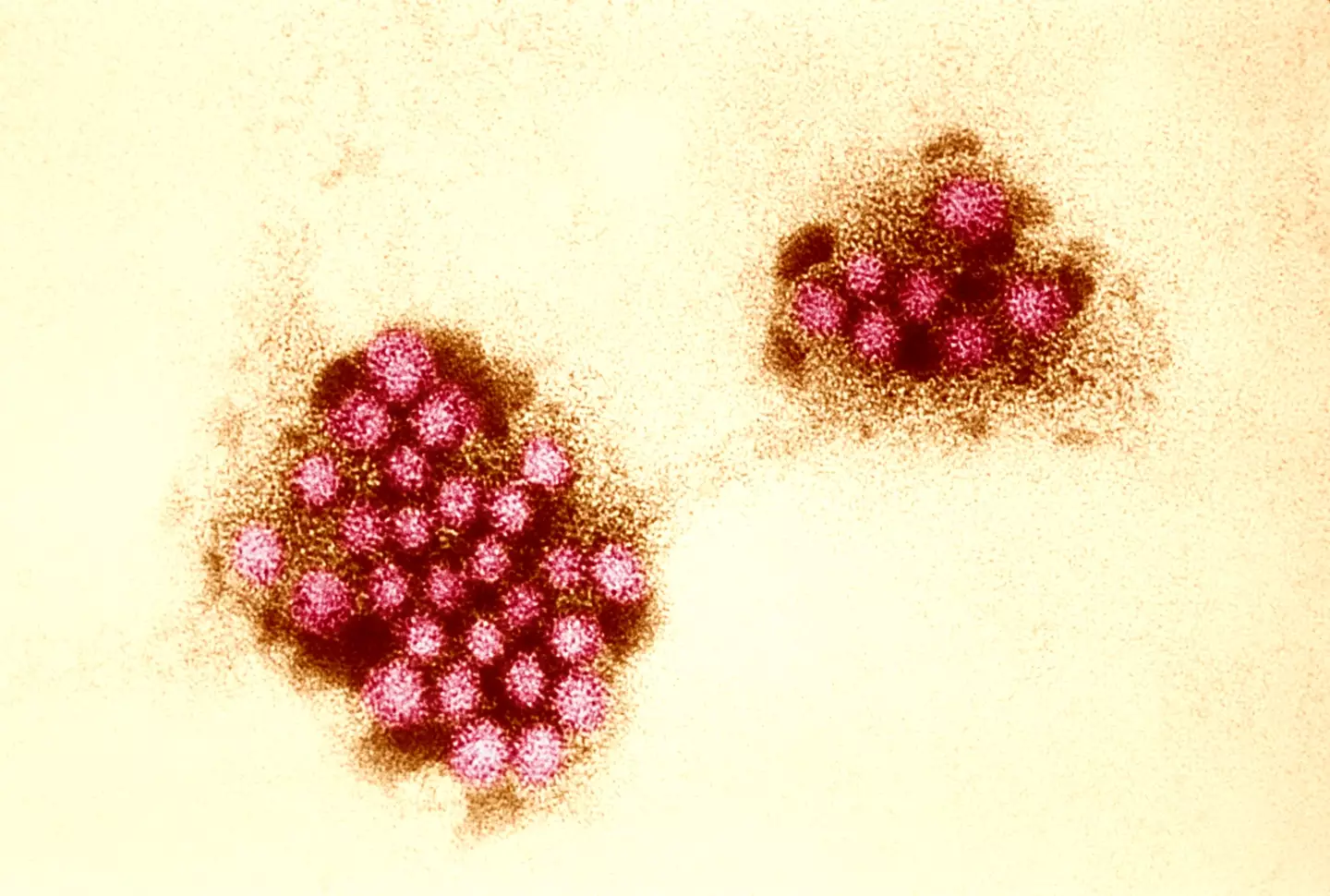
Norovirus close up under a microscope (BSIP/UIG Via Getty Images)
Should I be worried about norovirus?
Dr Sambyal explains that while norovirus makes you sick, there is usually not much danger beyond being under the weather if you’re fit and healthy. You kind of just have to ride out the storm.
The main thing to worry about is dehydration, with people losing a lot of fluids through the symptoms of getting the winter vomiting bug.
“Dehydration that can result from the fluid loss is something to keep an eye on, particularly in young children, the elderly, and people with weakened immune systems,” the doctor explains.
Featured Image Credit: Getty Stock Images
